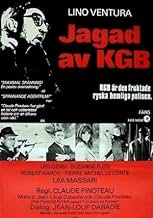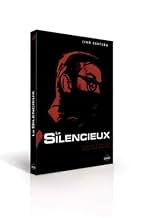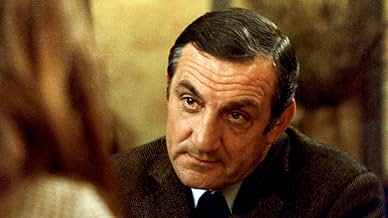Aggiungi una trama nella tua linguaWho is Anton Haliakov, who has just been abducted by the M.I.5 in London? A Soviet scientist apparently. But sixteen years before the man had another identity, Clément Tibère, and another na... Leggi tuttoWho is Anton Haliakov, who has just been abducted by the M.I.5 in London? A Soviet scientist apparently. But sixteen years before the man had another identity, Clément Tibère, and another nationality, French. So what led him to become Russian and to change identity? And why are t... Leggi tuttoWho is Anton Haliakov, who has just been abducted by the M.I.5 in London? A Soviet scientist apparently. But sixteen years before the man had another identity, Clément Tibère, and another nationality, French. So what led him to become Russian and to change identity? And why are the British secret services interested in him?
- Regia
- Sceneggiatura
- Star
Recensioni in evidenza
A French scientist ,who was forced to work for the Russians is arrested in England and they ask him to denounce English spies working for the KGB.He knows when he is released that his days are numbered.Lino Ventura gives a restrained effective performance and he gets good support from Suzanne Flon whose part is quite credible .On the other hand ,Lea Massari 's character is almost completely pointless.
Pinoteau was strongly influenced by Hitchcock whose "torn curtain" and above all "the man who knew too much (1956) come to mind.The last sequence ( the concert) directly comes from the latter.
Like in all the good spy thrillers (Ritt's "the man who came from the cold" or Clouzot's "les espions" ) the villains are everywhere,not only in Russia.
Viewers will find themselves immersed in a spy film, but it is not an action movie like the James Bond series (which had already recorded a decade of success at the time) but rather a psychological film. The main hero played by Lino Ventura, a French scientist kidnapped 16 years earlier by the Soviets and recovered by the British intelligence, could very well be mistaken for a hero of John Le Carre's novels, a hero inadvertently involved in the secret wars, who's life is stolen and who finds himself obliged to act in the service of causes in which he does not believe. His attempt to recover his life or even to reconcile himself with his own conscience is similar to the dilemmas of heroes of the spy films of the last part of the career of Alfred Hitchcock, the master of suspense, quoted quite copiously in this film, especially in the natural scenery backgrounds and the use of music.
Today's viewer has plenty of reasons to enjoy this movie, apart from Ventura's excellent acting game. The spectacular scenes are not lacking but the attention is drawn to the hero's fate and turmoil. The 1970s France and Switzerland are as beautiful as today, minus the crowds on the roads at a time when there were probably 1% of today's cars. The spy movie is a genre in which a movie can become very quickly out of date, especially if it focuses on the volatile political issues in contemporary history where enemies and friendships disappear and appear quickly.'Le Silencieux' avoids this trap by focusing on the fate of the main hero, and thus manages to maintain interest despite the passage of time.
Lo sapevi?
- QuizEdouard Molinaro was first considered to direct this film.
- ConnessioniFeatured in Fantôme avec chauffeur (1996)
I più visti
Dettagli
- Data di uscita
- Paesi di origine
- Lingue
- Celebre anche come
- Escape to Nowhere
- Luoghi delle riprese
- Col de Gleize, Hautes-Alpes, Francia(Clément's death scene)
- Aziende produttrici
- Vedi altri crediti dell’azienda su IMDbPro
- Tempo di esecuzione1 ora 57 minuti
- Mix di suoni
- Proporzioni
- 1.66 : 1
Contribuisci a questa pagina





























